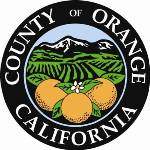Orange County Vows to Fight Plan for Expanded Needle Exchange
Santa Ana, California – After removing 14,000 dirty needles from the Santa Ana Riverbed, Orange County is fighting a proposal to give away more needles to addicts.
On Tuesday, a unanimous Board of Supervisors adopted a resolution to oppose a pending application with the California Department of Public Health for a mobile needle giveaway program in Orange County.
“Orange County just cleared 13,950 needles from the Riverbed,” said Supervisor Andrew Do, Chairman of the Orange County Board of Supervisors. “This program is a proven failure. Needles end up in parks and on sidewalks and jeopardize the health and safety of Orange County.”
After being denied a local permit by the City of Santa Ana, the Orange County Needle Exchange Program is seeking to exploit a loophole in state law that would allow a mobile unit to evade local city restrictions. The program, which plans to operate in a different city each day of the week, will give away 20 syringes for every dirty needle.
If the state grants the permit, Chairman Andrew Do has asked the county’s attorneys for a plan to fight the needle giveaway in court.
Needle Giveaway: Proven Failure at OC Homeless Encampments, Libraries
Supporters of free needle programs frequently cite academic studies that show a reduction in the transmission of HIV, Hepatitis B, Hepatitis C and other diseases among intravenous drug users. However, those studies have not been replicated locally, and also come at a serious cost to public health.
From 2016 to 2018, the Orange County Needle Exchange Program handed out thousands of free syringes to at least 12,000 people in Santa Ana. Many of those needles ended up in homeless encampments at the Santa Ana Riverbed and Civic Center. Earlier this year, county employees removed 14,000 needles – potentially contaminated with infectious diseases — from just a four mile stretch of public land.
Staff at Santa Ana libraries say that syringe littering has become a “huge” problem. Prior to the program, staff rarely found dirty needles. Now, they routinely find 40 to 50 per month.
“We found them on shelves, near planters, window sills, in books,” Heather Folmar, Santa Ana Public Library operations manager, told the Daily Pilot. “A cleaning lady was pricked by one.”
City of Santa Ana Opposed
Citing the public health risks, the City of Santa Ana refused to renew the permit for the needle giveaway earlier this year.
“The original intent of the program was to provide public health and safety, which is a noble cause,” Santa Ana Deputy City Manager Robert Cortez told the Orange County Register. “But the number of issues that came up and compounded for city staff, there was just too much evidence that goes against the purpose of this program.”
By operating a mobile unit, the needle giveaway program is attempting subvert the City of Santa Ana’s decision.
“The City of Santa Ana’s decision must be respected,” said Chairman Do. “Santa Ana residents have every right to be safe from dirty needles in their neighborhoods.”
Law enforcement officials in Costa Mesa, another destination for the mobile unit, fear the program will make the city’s drug problem worse.
“This program could be a magnet for drug users in other cities where a needle exchange program does not exist, thus drawing more drug users to Costa Mesa,” Costa Mesa Police Capt. Bryan Glass wrote in a letter of opposition.
Threat to Public Employees
Needle giveaways shift the public health risk from drug addicts to public employees.
Every year, more than 1.8 million needles are unaccounted for in San Francisco, which operates one of the largest needle giveaway programs in the state. Transit riders in the Bay Area say that BART has become littered with needles.
Earlier this year, a Caltrans employee was reportedly pricked with a hypodermic needle while cleaning up a homeless camp in San Diego. In March, a library employee in Seattle was “rushed to a hospital after being stuck with a needle.”
Public Comment Deadline: June 25th
The Orange County Board of Supervisors is urging residents to submit public comments to the California Department of Public Health. By law, the agency must accept public comments for a 90-day period, which ends June 25, 2018.
You can send your comments to SEPApplication@cdph.ca.gov.



